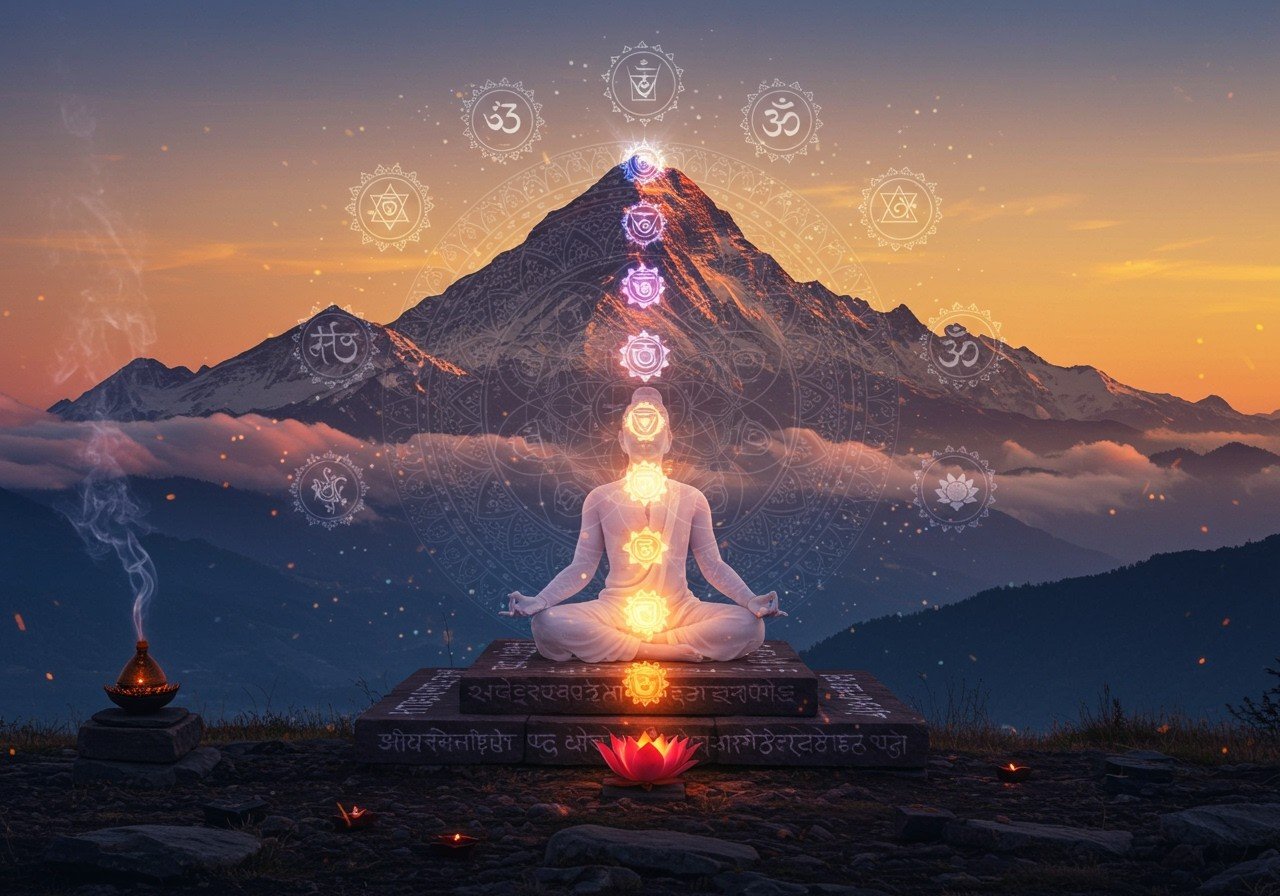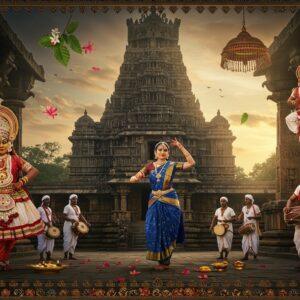
Yoga philosophy, an ancient system of thought and practice, has profoundly influenced spiritual, mental, and physical well-being for millennia. More than mere physical exercise, yoga offers a holistic approach to life. This exploration delves into the history, evolution, and core tenets of yoga philosophy, emphasizing its significant impact on Indian culture and society. As we uncover the wisdom of yoga, we can learn to live with intention, balance, and a deeper connection to ourselves.
History of Yoga Philosophy
Yoga’s history is a captivating voyage through time. Originating in ancient India, its roots trace back to 3000 BCE. The Indus-Saraswati Civilization provides some of the earliest glimpses into yoga’s beginnings. Soapstone seals discovered in Mohenjo-Daro, dating to the 3rd millennium BCE, depict figures in poses resembling yogic asanas. These artifacts suggest that yoga was already an integral part of this ancient culture, practiced for physical and spiritual development.
- Vedic Period: The Rig Veda, a collection of ancient hymns, marks the first written mention of “Yoga.” The Vedas, sacred texts of Hinduism, contain the earliest known teachings about yoga, laying the foundation for its philosophical and practical development. This period witnessed the emergence of fundamental yogic concepts that continue to shape the practice today.
- Pre-Classical Yoga (2700 BCE to Patanjali’s Period): This era witnessed the evolution of yoga practices as documented in the Vedas, Upanishads, Buddhist and Jain teachings, Smritis, Epics, and Puranas. These texts offer valuable insights into the diverse forms of yoga that existed before the classical period, showcasing a range of practices and philosophies.
- Classical Yoga (Around 2nd Century BCE): Patanjali, a sage and scholar, systematized yoga practices in his seminal work, the Yoga Sutras. These sutras became the cornerstone of classical yoga, providing a framework for understanding and practicing yoga as a path to liberation. Patanjali’s teachings emphasize the eight limbs of yoga, a holistic approach to achieving physical, mental, and spiritual well-being.
- Post-Classical Yoga: Hatha Yoga flourished during this period, focusing on physical postures and breath control to prepare the body and mind for deeper spiritual practices. The 19th century marked a significant turning point as yoga was introduced to the West. Swami Vivekananda played a crucial role in popularizing yoga in Western cultures, bridging the East and West through the wisdom of this ancient practice.
- Modern Yoga: Yoga has blossomed into a global phenomenon, with various styles and approaches catering to diverse needs and preferences. From traditional Hatha to dynamic Vinyasa and restorative Yin, modern yoga offers a wide range of options for practitioners of all levels.
Ancient Yoga Philosophy
Ancient yoga philosophy delves into profound concepts that continue to resonate today. Central to these teachings are ‘Karma’ (action and consequences), ‘Dharma’ (duty or righteous conduct), and ‘Moksha’ (liberation from the cycle of rebirth). The interconnectedness of ‘Atman’ (the individual self) and ‘Brahman’ (the ultimate reality) forms the spiritual heart of yoga. The Bhagavad Gita, a revered philosophical text, outlines four paths of yoga: Bhakti (devotion), Karma (action), Jnana (knowledge), and Raja (meditation). These paths offer different approaches to spiritual growth, allowing individuals to choose the path that best aligns with their nature and aspirations.
Ethical guidelines known as ‘Yamas’ (restraints) and ‘Niyamas’ (observances) provide a moral compass for yogic living. These principles promote self-discipline, ethical behavior, and a harmonious relationship with oneself and the world. Meditation and mindfulness are integral practices, fostering self-awareness, inner peace, and a deeper understanding of the true nature of reality.
Traditional Yoga Philosophy and its Relevance Today
Traditional yoga philosophy has been carefully preserved and transmitted through generations of gurus and ashrams. These lineages have played a vital role in safeguarding the authenticity of yoga practices and teachings. In Indian culture, yoga is seamlessly integrated into daily rituals and ceremonies, reflecting its profound significance in spiritual and social life. Yoga’s enduring presence in Indian society highlights its timeless wisdom and practical application in fostering well-being and spiritual growth.
Amidst the global surge in yoga’s popularity, it’s essential to honor and protect traditional practices. While modern adaptations have made yoga accessible to a wider audience, preserving the traditional forms ensures that the rich heritage and depth of yoga are not lost. Organizations and government initiatives are actively involved in promoting authentic yoga traditions, ensuring that the essence of yoga remains intact for future generations.
Core Principles of Yoga Philosophy
Yoga philosophy is rooted in fundamental ethical principles that serve as guiding lights for daily life. ‘Ahimsa’ (non-violence) encourages compassion and respect for all beings, promoting peaceful coexistence. ‘Satya’ (truthfulness) fosters honesty and integrity in our thoughts, words, and actions. ‘Asteya’ (non-stealing) extends beyond material possessions to encompass respecting others’ time, energy, and intellectual property. ‘Brahmacharya’ (continence or moderation) emphasizes balance and responsible use of energy, fostering physical and mental well-being. These principles offer a roadmap for ethical living, guiding us towards a more meaningful and fulfilling existence.
- Aparigraha (Non-Possessiveness): Aparigraha encourages us to detach from material possessions and cultivate contentment. It teaches us to value experiences and relationships over material wealth, freeing us from the burdens of attachment and consumerism. This principle reminds us that true happiness lies not in what we own, but in the richness of our inner lives.
- Svadhyaya (Self-Study): Svadhyaya invites us to embark on a journey of self-discovery through introspection, reflection, and the study of sacred texts. By turning our attention inwards, we gain deeper insights into our thoughts, emotions, and motivations, fostering self-awareness and personal growth. This practice allows us to better understand ourselves and our place in the world.
- Ishvara Pranidhana (Surrender to a Higher Power): Ishvara Pranidhana involves cultivating humility and faith by surrendering to a higher power or divine principle. This surrender allows us to release our ego’s grip and connect with a sense of greater purpose and meaning in life. This principle fosters a sense of trust and acceptance, allowing us to navigate life’s challenges with grace and resilience.
Understanding these core principles allows us to connect with the deeper truths within ourselves. Yoga philosophy offers timeless wisdom that can guide us towards a more purposeful and fulfilling life. By integrating these principles into our daily lives, we can cultivate inner peace, compassion, and a stronger connection to our true selves.
How Poojn.in Supports Your Yoga Journey
Poojn.in, India’s leading provider of cultural goods and services, offers a wide range of products to enhance your yoga and meditation practice, aligning with traditional philosophies. Explore our carefully curated collection, including:
- Clay Doat for Saraswati Puja: This traditional clay lamp is ideal for creating a sacred atmosphere during your yoga or meditation practice. Saraswati, the goddess of knowledge and wisdom, is often invoked for blessings in these practices.
- Srimad Bhagavad Gita: Delve deeper into the philosophical underpinnings of yoga with this sacred text. The Bhagavad Gita offers profound insights into the nature of reality, duty, and the path to liberation.
- Meditation Mats and Asanas: Choose from traditional kusha grass mats and comfortable cotton asanas to provide the ideal foundation for your practice. These mats offer both comfort and support, allowing you to fully immerse yourself in your yoga or meditation session.
- Clay Items:Discover a variety of clay items, including lamps and incense holders, to create a sacred and serene environment for your practice.
Poojn.in offers convenient home delivery across India, bringing authentic yoga supplies directly to your doorstep. Each product is carefully selected and certified for quality, ensuring that you receive the finest items for your spiritual practice. For more information about our products and their specific uses, visit www.poojn.in or contact our customer service team.


